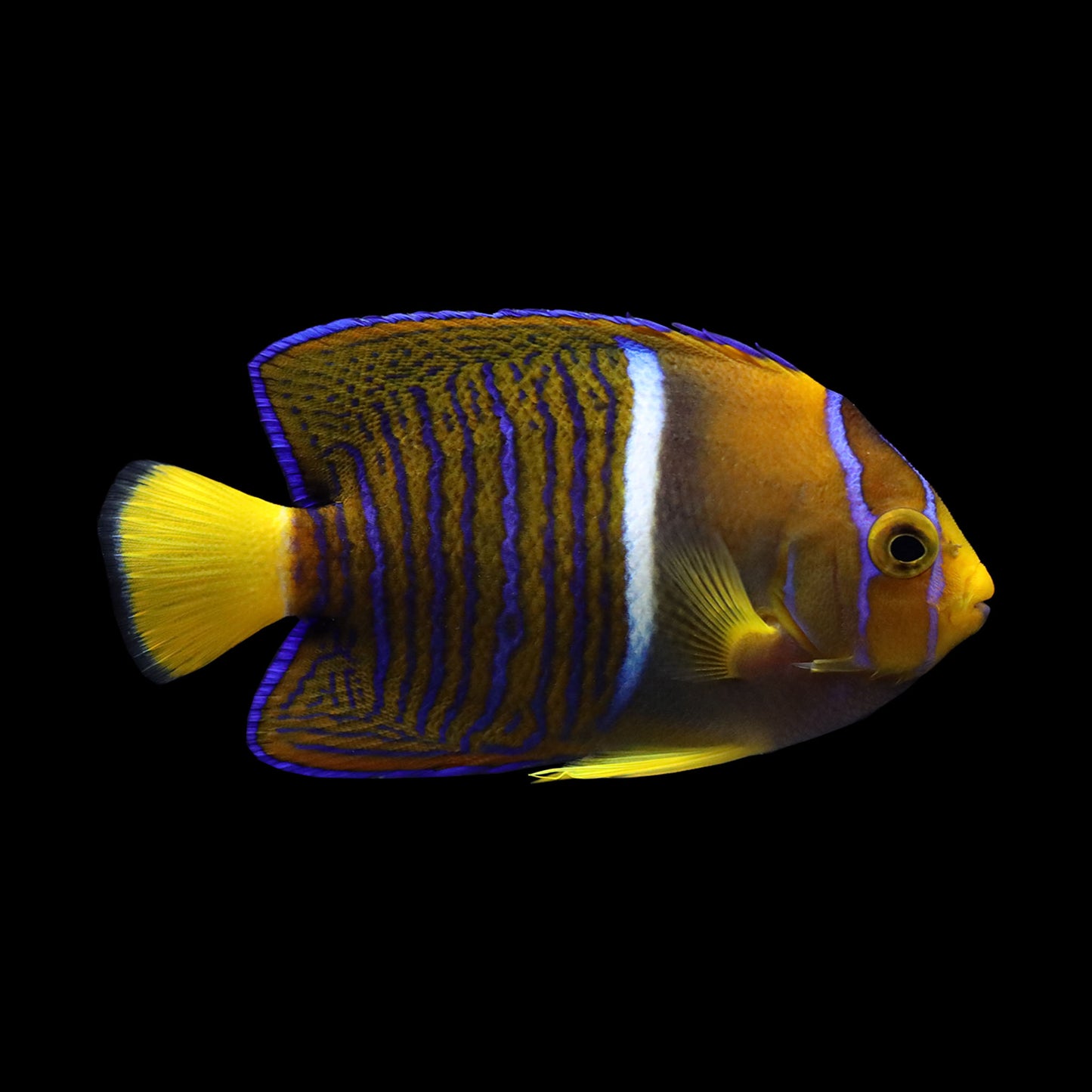AQUARIUM ARTS
Passer Angelfish (Holacanthus passer)
Passer Angelfish (Holacanthus passer)
Couldn't load pickup availability
Passer Angelfish (Holacanthus passer)
Discover the Majestic Passer Angelfish
The Passer Angelfish is a large and striking species known for its bold coloration and regal presence. With its vibrant hues and commanding size, the Passer Angelfish is a standout choice for experienced aquarists looking to add an eye-catching centerpiece to their saltwater aquarium. Its hardy nature and stunning appearance make it a popular choice for fish-only setups.
Appearance: The Passer Angelfish is truly a sight to behold. As juveniles, they display a predominantly orange and blue. As they mature into adults, their coloration transforms dramatically—adults boast a deep blue with orange and yellow. This stark contrast makes the Passer Angelfish an incredibly vibrant and eye-catching species in any aquarium.
Behavior: Passer Angelfish are active and confident swimmers, often becoming the dominant presence in the aquarium. While they are known for their bold and sometimes territorial behavior, they can coexist with other robust fish species in large aquariums. However, caution is advised when housing them with smaller, timid species, as Passer Angelfish can display aggressive tendencies, particularly as they mature.
Diet: Passer Angelfish are omnivores and require a varied diet. They thrive on a mix of high-quality marine-based pellets, flakes, and frozen foods such as brine shrimp, mysis shrimp, and chopped seafood. In the wild, they graze on sponges and algae, so offering a diet supplemented with marine algae or spirulina is crucial to maintaining their health and vibrant coloration. Regular feedings of a diverse diet help support their immune system and keep them thriving in captivity.
Tank Requirements: Due to their size and active nature, Passer Angelfish requires a spacious aquarium of at least 180 gallons. The tank should be well-structured with plenty of live rock to provide hiding spots, grazing areas, and ample swimming space. Maintaining excellent water quality and stable conditions is crucial for their well-being. Because of their territorial tendencies, it’s important to provide enough space for them to establish their domain.
Tankmates: Passer Angelfish can be semi-aggressive, particularly as they mature, and are best suited for tanks with other robust, non-aggressive species such as large tangs, triggerfish, and groupers. Avoid housing them with smaller or delicate species that may be bullied. This fish can be kept with other angelfish of the same genus, but it’s advisable to introduce them all at the same time to minimize aggression. Ensure that algae and other food sources are abundant to reduce territorial disputes.
Reef Aquarium Compatibility: Passer Angelfish are generally not considered reef-safe due to their tendency to nip at corals, especially stony corals and soft invertebrates. They are best suited for fish-only setups or fish-only with live rock (FOWLR) aquariums where their beauty and personality can be enjoyed without the risk of damaging delicate reef organisms.
Max Size: Passer Angelfish can grow up to 14 inches (35 cm) in length, making them one of the larger angelfish species. Their size and territorial behavior require them to be housed in large, well-maintained tanks.
Origin: Passer Angelfish are native to the Eastern Pacific, ranging from the Gulf of California down to Peru and the Galápagos Islands. They are typically found in rocky reef environments.
Interesting Facts:
-
The Passer Angelfish is also known as the King Angelfish due to its bold colors and commanding presence in the aquarium.
-
They undergo a dramatic color transformation from juveniles to adults, making them a visually stunning species throughout their life stages.
-
Passer Angelfish are known to be hardy and long-lived, making them a rewarding choice for experienced aquarists.
Disclaimer: Aquarium Arts cannot guarantee compatibility with your current fish or the fish you buy and cannot be held liable for fish lost due to aggression.
Share


